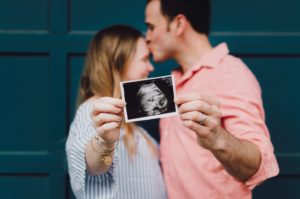
During and after birth, the gut of a newborn baby is rapidly colonized with microbiota. This early gut colonization plays an important role in the baby’s immune system development. Factors such as premature birth, cesarean section delivery and antibiotic exposure have been identified to disrupt the colonization process and contributed to the increased risk of developing chronic diseases in later life, such as asthma, and metabolic disorders.
In a recent study published in Cell Reports Medicine, Jillian and her colleagues followed 23 full-term infants and 19 preterm infants for 1 year to understands the persistent gut microbiota and the origin of this microbiota. A total of 402 samples from infants and their mothers were collected and subjected to deep metagenomic sequencing. Infants’ samples were assigned into seven groups based on the age of children at the time of sample collection (at birth, 1 month, 2 months, 3 months, 4 months, 8 month and 1 year). The mothers’ samples were collected at the time of delivery and used to identify the transmission of microbiota between the infant and the mother’s gut microbiota.
Findings from this study found that:
In conclusion, early gut microbiota colonization plays an important role in determining the persistent microbiota throughout the first year of life.
Keywords: Persistent microbiota, Full-term infants, Preterm infants, Bifidobacteria, Bacteroidetes
Reference:
Lou, Y. C., Olm M. R., Diamond S., et al. (2021), Infant gut strain persistence is associated with maternal origin, phylogeny, and traits including surface adhesion and iron acquisition, Cell Reports Medicine, 2 (9), https://doi.org/10.1016/j.xcrm.2021.100393


This website and the information it contains is not intended as a substitute for professional consultation with a qualified practitioner.
© MothersBabies Ltd. View our Terms of Use & Privacy Policy
Search MothersBabies
Looking for something in particular? Find it here using our search query function. Simply type in your keyword and click the icon.
Recent Articles






Join Us